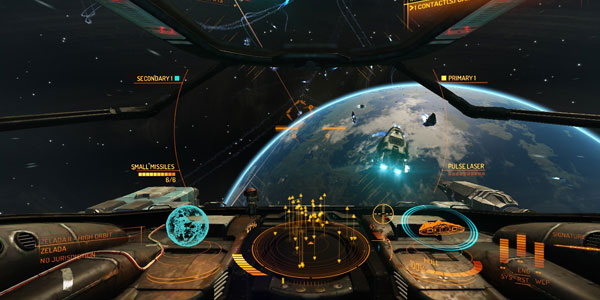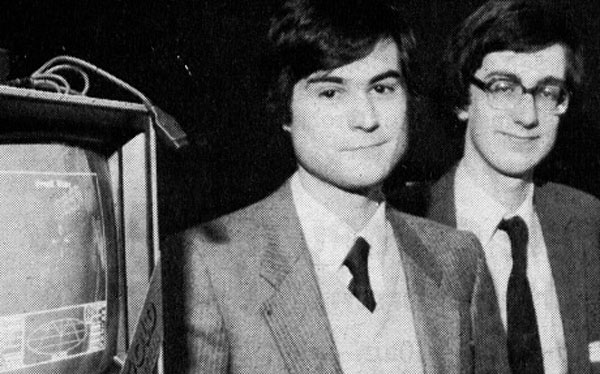
In September 1984, from an office in an alley behind a British Gas showroom in Cambridge UK, a computer game was born - Elite. It had primitive graphics consisting of slightly wobbly planets, 3D outlines of space ships, and precious little colour. Its programming, one of the two student creators now admits, was a mess. It used just 22 kilobytes of memory, roughly what is required for an Email today. Yet it would change the face of computer gaming for ever.
Elite Dangerous is the remake of that game. You can even use the virtual reality headset Oculus Rift - how times have changed!
In the year 3300, across the vast expanse of an epic, full-scale recreation of our Milky Way, interstellar rivalries flare as galactic superpowers fight proxy wars.
Some may know you as an ally; others will call you a pirate, a bounty hunter, a smuggler, an explorer, an assassin, a hero... Fly alone or with friends, fight for a cause or go it alone; your actions change the galaxy around you in an ever unfolding story.
Start with a small starship and a few credits, and do whatever it takes to get the skill, knowledge, wealth and power to stand among the ranks of the Elite.
Official Trailer
History
In 1984 you could buy Elite for £14.95, and it was the first genuine 3D home-computer game. You could navigate a Cobra Mk III spaceship through eight galaxies, upgrading your ship using money earnt from trading, while defending yourself against 'space pirates' determined to shoot you down.
The more spacecraft you destroyed in ground breaking, three-dimensional dogfighting, the more you progressed through the ranks, from 'Harmless', 'Mostly Harmless', all the way to 'Dangerous', 'Deadly', and, finally, 'Elite'.
Elite from 1984

Elite creators David Braben and Ian Bell

David Braben had started programming in 1981 after his parents had bought him a £120 Acorn Atom computer for Christmas. He created a few games, then bought some from shops. "I thought, 'My games are much better, and these guys get paid for producing theirs... interesting.'"
Arriving at Cambridge University, he met Ian Bell, who was studying maths. Bell shared Braben's interest in programming. Even better, he had a BBC Micro computer (which cost a mighty £335).
They used every bodge they could think of to cram a 22K game into the BBC's 32K computer, leaving just 10K, the bare minimum required to keep the rest of the machine's operating system going. That's partly why Elite was set in space - "The computer doesn't have to draw a background. You can leave it black," says Braben. "The programming was a mess, but we knew we were on to something big."
Now David Braben is running Frontier Developments, which has 80 staff consisting of designers, animators, musicians, and testers.
Elite: Dangerous is available from https://store.elitedangerous.com/elite-dangerous.html/.

Comments
Leave a Comment